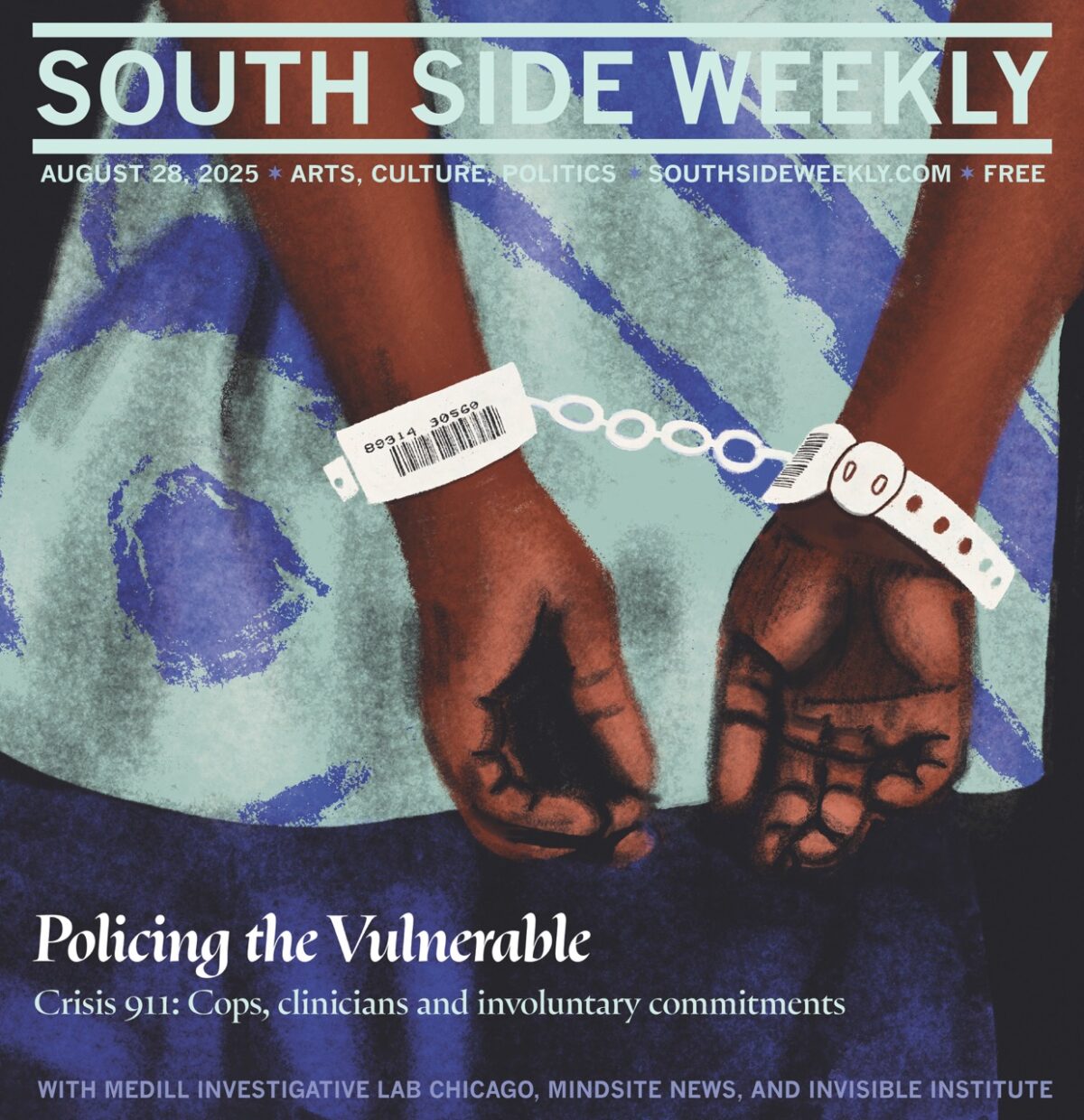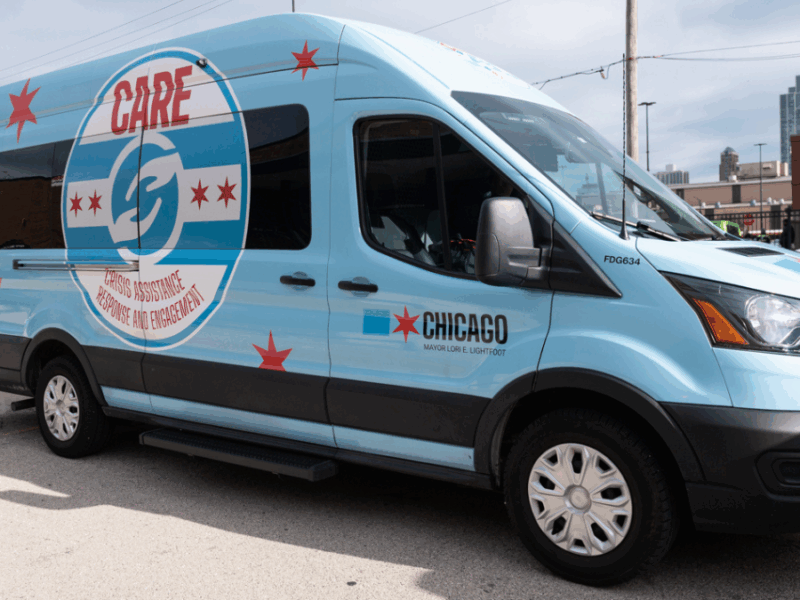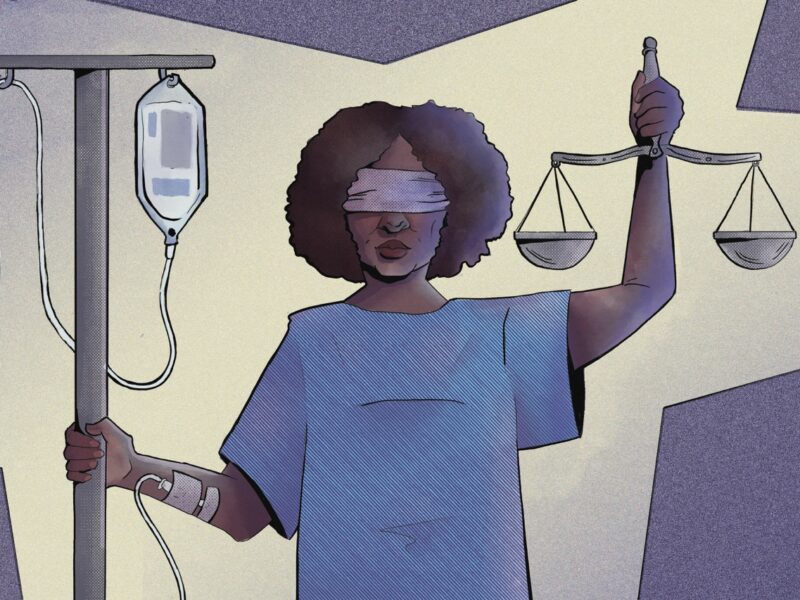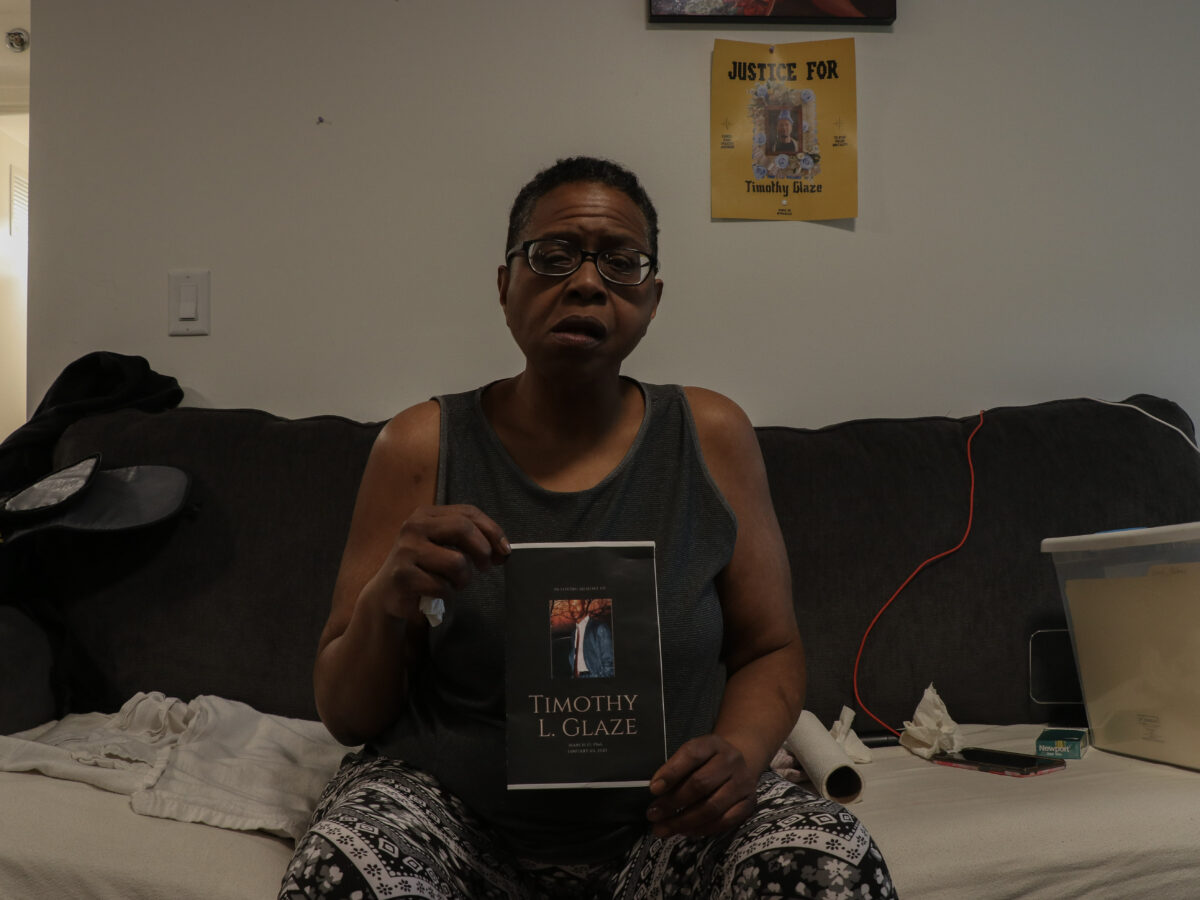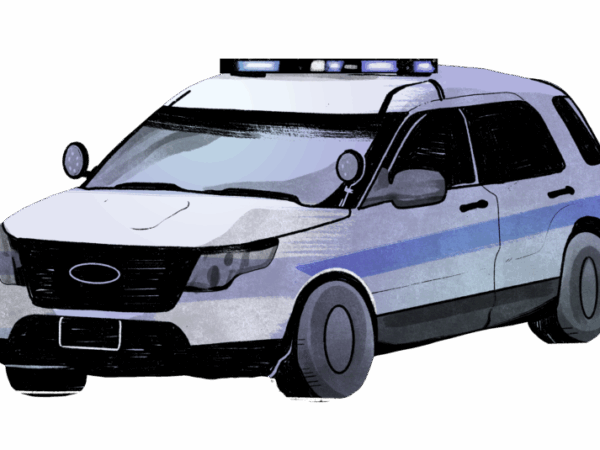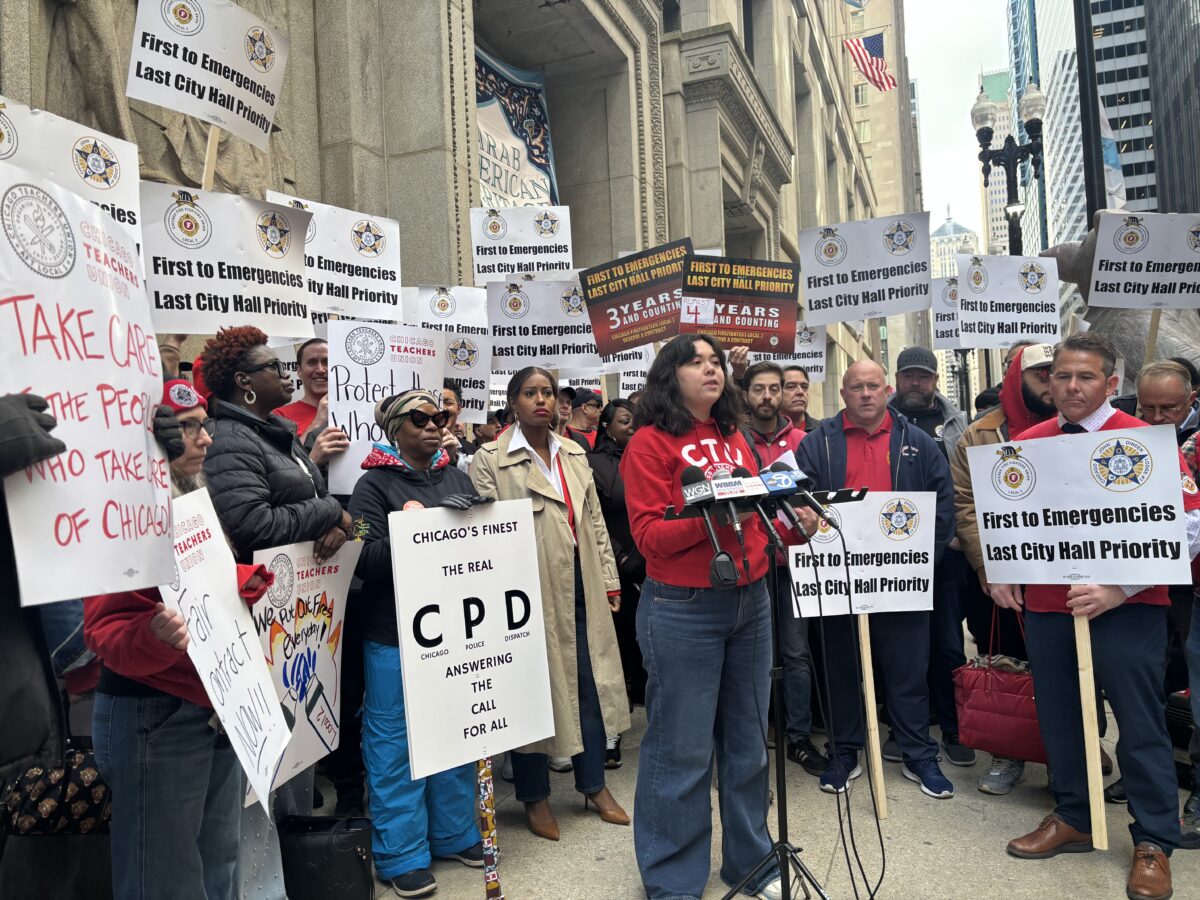About this special issue
Last July, the killing of Sonya Massey by a police officer downstate placed police responses to mental health calls in Illinois in the national spotlight. Though it took place nearly 200 miles away, the shooting echoed loudly in Chicago, where officers respond to hundreds of mental health-related calls per day.
These calls range from mundane complaints about loitering to those that elicit a SWAT response. Some end in arrest. Sometimes the caller agrees to go to a medical facility. But our investigation shows that officers are increasingly strapping residents to gurneys and forcing them into ambulances, then hospitals. Experts we interviewed say it has become the “default” response.
Though it’s hard to find reliable data, it’s not just happening in Chicago. And with the mounting mental health crisis and an executive order from the White House to force unhoused people into institutions, it’s bound to become a more and more popular choice.
For the last two years, the teams at the Invisible Institute and MindSite News dug into data from the Chicago Police Department to find out just how often the police are hospitalizing Chicago residents—more than six a day last year. We also wanted to know how these often violent interactions play out in the real world. Are the people who get hospitalized helped? And what happens once the police leave? Too often, it can be a trauma that continues to haunt people and undermine their mental health.
For this special issue, we wanted to look at the whole mental health landscape in Chicago. We enrolled student journalists from Medill Investigative Lab-Chicago, who spent six months diving into the CARE unit, the city’s alternative crisis response team that police were removed from last year. They also looked into what happens when police respond with force to a growing number of those mental health calls per day. And they explored Crisis Intervention Team training, a widely-used effort designed to help police better recognize and respond to people experiencing a mental health crisis.
Hopefully, this package can serve not only to document growing problems, but as a springboard for thinking through solutions—starting right here on the South Side.
Thanks for reading,
Josh McGhee
Chicago Bureau Chief, MindSite News
Crisis Response In Turmoil: Chicago’s CARE Program at a Tipping Point
Chicago’s mental health crisis teams were meant to replace police with clinicians. Bureaucratic dysfunction and fading federal support now threaten their survival.
Shadow Arrests: Chicago Police Make Growing Use of Forced Psychiatric Hospitalization
Thousands in crisis get involuntarily hospitalized despite little evidence of effectiveness.
Expiring Federal Funds Threaten Chicago’s Alternative Crisis Response Effort
Chicago will need to dig deep to sustain and expand the CARE program, but state funds could offer hope.
From the Elevator to the Floor in Eighteen Seconds
When Chicago police fail to de-escalate mental health emergencies.
Despite Crisis Training, Many Chicago Police Officers Still Resort to Force in Mental Health Crises
Last year, 169 police officers who received training used force at least once during a mental health-related incident in Chicago.
Paramedics Out, EMTs In: Chicago CARE Program Caught in Labor Crossfire
According to the Chicago Firefighters Union, CARE crisis response teams are ill-equipped to handle medical emergencies when EMTs are substituted for fire department paramedics. But according to the city, the modification is required to maintain program staffing.
Credit
Stories on CARE and the use of force were produced by the Medill Investigative Lab-Chicago at Northwestern University. Medill students Janani Jana, Rachel Heimann Mercader, Claire Murphy, Maggie Dougherty, Skye Garcia, Nicole Johnson, Rachel Yoon, Tyler Williamson, Jai Indra, Charlotte Ehrlich, Emma Sullivan, Margarita Williams, Sam Biggs, Hope Moses, Ashley Quincin, Jasmine Kim, Mariam Cosmos, Tom O’Connor, Sara Cooper, Sin Yi Au, Christiana Freitag, Mitra Nourbakhsh, Angeles Ponpa, Nora Rosenfeld, Britton Struthers, Arthi Venkatesh, and Sarah Xu contributed. The lab is led by Medill assistant professor Kari Lydersen; Medill assistant professor Matt Kiefer’s students led data analysis and visualization.
The story on involuntary commitments was produced by Invisible Institute and MindSite News. Josh McGhee of MindSite and Dana Brozost-Keller, Isabelle Senechal, and Sam Stecklow, of Invisible Institute reported the story, along with Medill externs Jenna Mayzouni, Allende Miglietta, and Stephana Ocneanu.
Project edited by Rob Waters, Josh McGhee, Kari Lydersen, Andrew Fan, Diana Hembree, and South Side Weekly editors.
Fact-checked by South Side Weekly’s Ellie Gilbert-Bair, Ella Beiser, Patrick Edwards, Christopher Good, Jinny Kim, and Lauren Shepherd.

